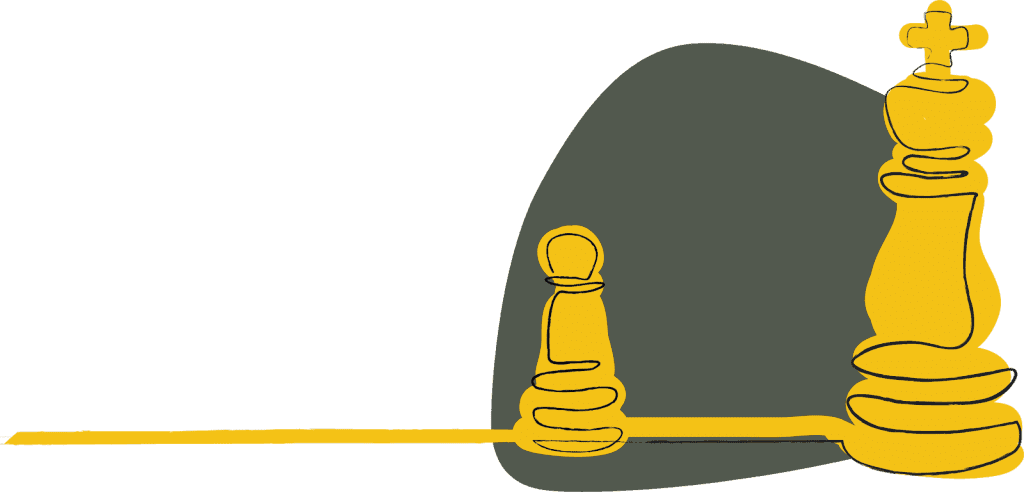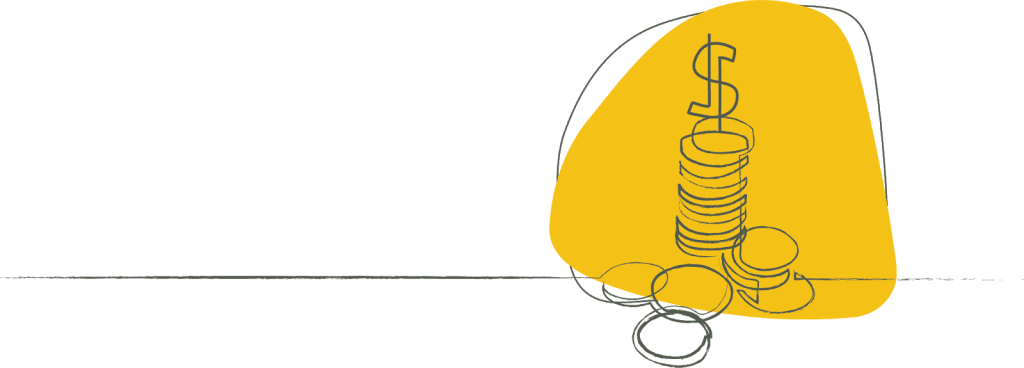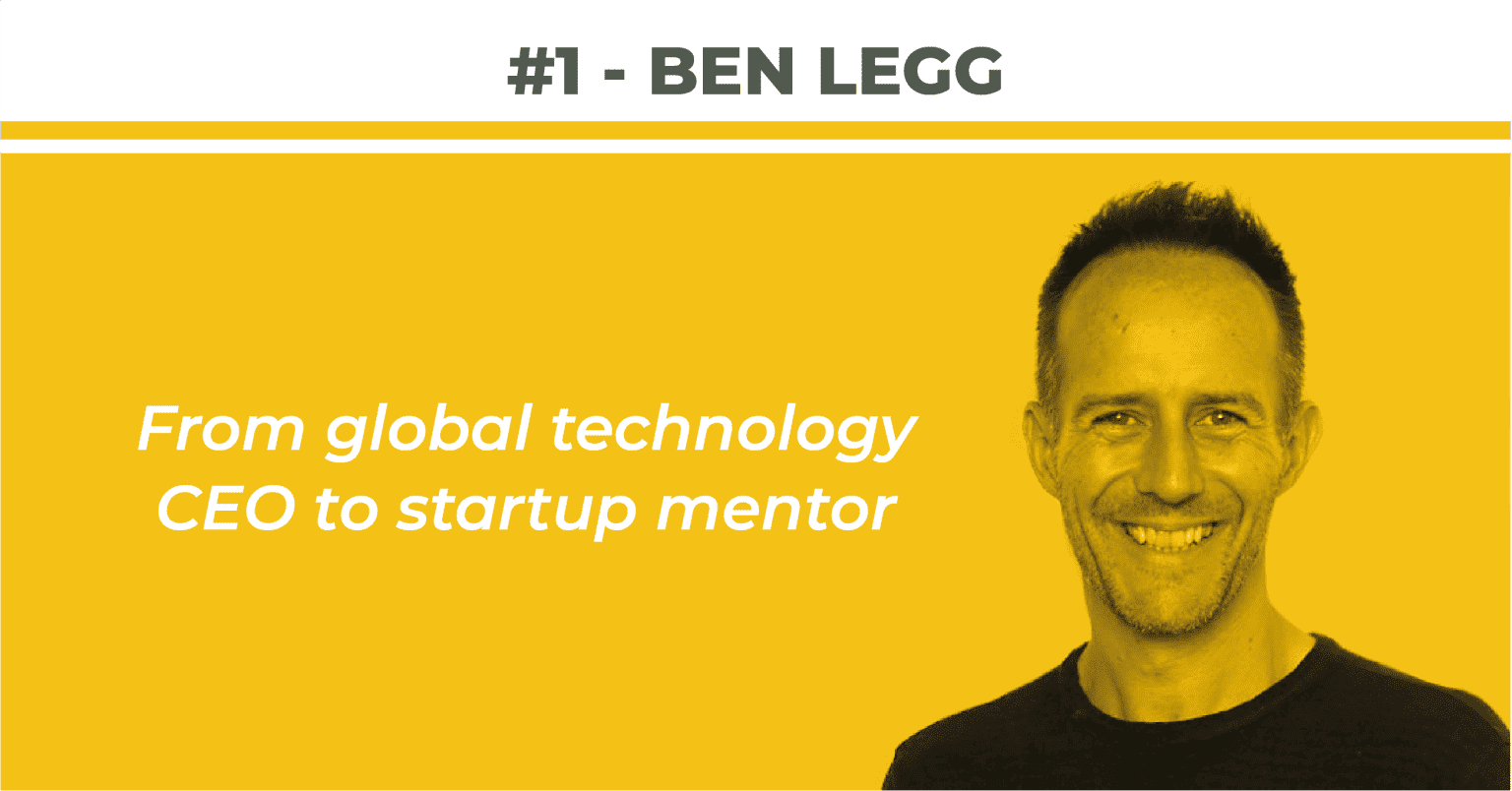Lexi Radcliffe-Hart
Before starting his portfolio career in 2019, Ben’s experience was built over 30 years in roles including army officer, McKinsey consultant, Coca-Cola executive, COO of Google Europe, Group CEO of AdKnowledge, and MD of Ola. He has lived in nine countries and worked in 60.
In August 2019 Ben quit his full time job and launched his portfolio career. One year in, we discuss his portfolio career so far, his biggest challenges, and how previous experiences have helped him make the leap.
Q: What led you to start a portfolio career?
A: The first sign that I didn’t want a full time role is that I was turning down what should have been incredibly attractive permanent job offers, including C-level roles at two different ‘unicorns’ (startups valued at over $1B).
After I turned both offers down, on reflection I realised that I just felt that I didn’t have much to prove or learn going back down that route.
Being in the rat race, working in an organisation that I wasn’t the founder of, in an industry that I wasn’t passionate about, just wasn’t that appealing to me anymore.

The second thing that attracted me towards a portfolio career was that I was really enjoying my ‘side hustles’. I was already spending 6-7 hours per week mentoring startups, making speeches and doing the odd bit of consulting. Due to my full time job commitments, I was also turning away a lot of work, so I felt reasonably confident of being able to fill my calendar and pay my bills from a portfolio career.
Q: Were you nervous about starting a portfolio career?
A: I knew it wasn’t a sure thing that I could make it work in all the ways I wanted it to – paying the bills, creating long term value, loving my work (and life) and ensuring long term sustainability.
I knew I had to work really hard and it might take quite a while to get the right balance. I also wondered whether it was truly in my DNA – I am big on teamwork and building great organisations, so working as a one person company created a risk that I would get lonely or feel that I wasn’t building anything.
However, as I was planning to build long term relationships with some great startup CEOs, and help them build world class organisations, I hoped that would be enough for me.
Q: What does your portfolio career consist of?
A: I do quite a few things.
My core focus is mentoring startup CEOs – typically in industries focused on the future of work, education, healthcare and mobility.
These companies could be as small as 2-3 founders with no money, up to a few hundred employees scattered around the world. They are all smart and ambitious.
Each month my work with these companies ranges from half a day (i.e. an hour per week) to two days. Some have raised money or are profitable and are able to pay me. Others are at a very early stage and pay me in equity. Some are formalised in a board position. Others are consulting agreements.
My second revenue stream is as an ‘industry expert’ in the digital advertising industry, working within expert networks such as GLG, Guidepoint and DeMatteo to help investors understand how the industry works and what the future holds.
I then have a few less demanding work types, which include helping venture capital funds find companies to invest in, helping private equity companies conduct due diligence on potential acquisitions and speaking at conferences.
Q: What are the benefits of a portfolio career versus a full time career?
A: Firstly your expert status.
When companies outsource to a portfolio professional, they mostly want an expert – so to win work you need to become really good at something. Being an expert is a reward in itself as it is very satisfying to be thought of as smart and a leader in your field. It also likely means you are generally doing cutting edge work.

Flexibility is another benefit, as most portfolio jobs can be done from almost anywhere you want.
This means you can work for clients anywhere in the world, from anywhere in the world.
A portfolio career is also much more resilient than having one permanent role. In addition to having multiple income sources, your work is always evolving, as old clients roll off and you win new ones. Therefore you are always developing cutting edge skills and knowledge to win new work.
In a bigger organisation, you have a much more ‘generalist’ set of skills and learn at a much slower pace. In such a fast changing world, that is dangerous. If you get laid off, will you be able to successfully compete against all those experts? You have no idea. That is a very high risk strategy for you and your family.
So a portfolio career is the financially safer bet.
Q: Did you have a side hustle before you started your portfolio career?
A: I’ve had side hustles since I was a teenager, plus done some property development and angel investing, so I have always made money beyond my day job.
However, my side hustles turned more professional after I left Google. I started being approached to speak at conferences and advise investors about the new world of digital advertising.
Then I joined some ‘accelerators’ and started mentoring startups. A year or two later I started working for the occasional private equity firm helping them to evaluate potential investments.
So really it all started with being positioned as an expert firstly in digital advertising, and then in building revolutionary digital organisations.
Q: What was the biggest hurdle you had to overcome in your portfolio career?
A: Coronavirus and initial lockdown was a challenge.
I started my portfolio career in earnest in August 2019 and by March 2020 (just before lockdown) was at about 30 hours per week of either portfolio work or building my sales pipeline.
When lockdown hit, all my conference speeches got cancelled, two promising consulting projects got stopped, and a startup that I was on the board of asked if it could defer my salary. So my workload dropped to around 20 hours per week and my cashflow forecasts halved.
I started off by doing a bit of ‘housekeeping’ – polishing my website, reading a few books and articles that I hadn’t had time to do and reflecting on the impact of COVID-19 on society. I also took the time to get to know my neighbours better.
Then after a few weeks I started proactively hustling again. The thing that worked was sending emails to a few venture capital investors saying ‘I like to mentor startup CEOs, so if you have any CEOs in your portfolio who need a mentor to help them pivot/ survive/ grow like crazy – let me know’.
It turns out there were many, and I picked up several clients. I am now ahead of my original plan.
Q: What new skills did you need to learn in order to succeed?
A: I had to either learn or relearn quite a lot. I built my website from scratch and ran some ads on Google, Facebook and LinkedIn. Those are things that I had dabbled with a long time ago but hadn’t done in years.
I also had to learn a lot about company structuring, tax and accounting. Should I set myself up as a company or as a sole trader? Should I charge VAT? How should I pay myself – salary or dividends? What costs can I expense? etc.
Q: What or who did you turn to for advice when you were setting up your portfolio business?
A: There wasn’t a really comprehensive organisation or website out there designed to help portfolio professionals to get up and running, so I mostly used self-help from YouTube videos and the help centres of various platforms and productivity tools.
I also turned to the odd ex Google colleague, and learned a lot from the startup CEOs I was mentoring.
A portfolio professional is basically a one person company, so can’t be paying too many experts for services, or it will never make money. Therefore self-help is essential for success.
For example, I wanted to learn more about search engine optimisation (SEO) in order to appear on page one of Google for certain keywords. Rather than paying an SEO expert to do the work for me, I paid one to teach me everything he could in a two hour 1:1 session, which cost me £150.
I now do my own SEO work.
Q: If you could give one piece of advice to a new portfolio career worker, what would it be?
A: Set yourself up thoughtfully.
Really think about what you want to become world class at, what you love doing, how you will win work, how you will manage your finances etc. A portfolio career is really a one person company and you are the CEO.
As the CEO, you need to have a strategy and a plan. Making it up as you go isn’t a strategy.
Q: What is the most challenging element of a portfolio career?
A: Forecasting your finances.
I never had a personal budget or forecast when I had a full-time job, because I knew how much I would earn each month after tax, and my costs were generally less than that, so things just worked.
Now I have 7-10 sources of income (clients or projects) at any one time, plus 3-5 prospective clients in the next few months. Forecasting what each client will generate, plus the likely payment timing of potential future prospects, is complex.

I also need to set aside enough money for future tax bills. So I now have a month-by-month forecast in a spreadsheet that I update weekly, plus a great accountant.
Q: How do you personally define success for your portfolio career?
A: Number one is just very pragmatic, which is on a month to month basis, does it pay the bills?
I don’t want to live off savings or run up debt.
The second question is whether I am enjoying it? Am I working with people I like? In industries that need reinventing? On problems I like solving?
Third is work/ life balance. Are my hours acceptable? Am I getting quality family time? Am I exercising enough? Am I getting away from the screen enough? Once lockdown is over, will I be able to travel for work or pleasure without things imploding?
Finally, there is long term value creation. I don’t want to stop work one day and have nothing. I am helping people build very valuable companies and want to capture a piece of the upside. So do I have the right levels of equity/ stock options to have a decent retirement one day?
Q: What has been the most surprising thing you found from your portfolio career?
A: How slow some potential clients can be at making decisions. For example, I often meet a startup CEO and discuss their opportunities and problems; the chemistry is good; we define a problem that needs solving and agree that I can help and my fees are acceptable. They have the money in the budget (and the bank) and yet they can still take a few weeks, and sometimes months, to actually make a decision and hire me.
This is due to a mix of their work overload, other competing priorities and often other people needing to be brought into the decision.
Q: What positive impact has switching to a portfolio career had on your life?
A: The sense of freedom. I am not at the beck and call of a company. I am the CEO of my own company. That’s liberating.
I also travel less and get more time to spend with my family. I get the odd midweek lunch with my wife, and most nights put my daughter to bed.
Overall, my life just feels more harmonious.
Listen to the whole conversation on Episode 1 of PorfolioCast:
Think this sounds like the right path for you? Come along to our monthly Community Welcome Call for new members to find out what a portfolio career could look like and how The Portfolio Collective can help you take those first steps towards professional success – and don’t forget to connect with our community!




